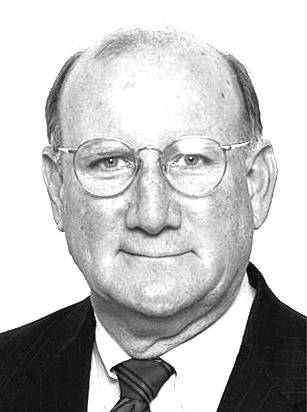When it became clear that Hurricane Helene was heading our way, the staff of the Courier Herald in Dublin, dived into planning for an unprecedented event. No storm this powerful had rolled through this region in my memory. Our top priority was preparing our readers for what was coming and helping them navigate safely through it.
When natural disasters strike, communities need reliable, trustworthy voices to deliver vital information to stay safe. The Courier Herald has served Dublin — a small town in the heart of rural Georgia — since 1876. We’ve been here for every milestone in our community, from the rise of the railroads in the late 1800s to the first public remarks of a 15-year-old named Martin Luther King Jr.
During a disaster, I think of our newspaper as a kind of civic infrastructure, delivering critical public information to the community that we serve. But with Helene, our role as trusted truth-tellers became just as important. Beyond flooding and wind damage, the storm brought a swirl of misinformation to Dublin and dozens of other communities just like it.
Confusion and mistruths spread like wildfire, unchallenged in the social media environment. No, local restaurants were not open during the height of the storm, serving anyone willing to “brave it.” Yes, federal support relief resources are available (as our reporting showed) — and no, your home will not be confiscated. In my view, this environment not only caused people to lose track of the truth, it put lives at risk.
Hurricane Helene was only the latest example of how misinformation is a scourge. But the storm revealed powerful weaknesses for me in our shared acceptance of facts. While we can rebuild our roads and roofs after a storm like Helene, a critical question is how we build a stronger infrastructure to support facts and trust.
I believe the answer to this question starts with local newspapers, which have the reputation and community credibility to be a widespread defense against misinformation. Our newspapers tackle tough issues while also covering what really creates a community: sports, arts, human interest and more. That unique community journalism gives us the loyal audience we need to be sustainable and the trust required to challenge power and tell the truth when it matters.
Of course, just as our journalism has become more important than ever, our business faces more challenges than ever. But in Georgia, we have created cause for hope. In 2023, we launched the Georgia Trust for Local News. The nonprofit unites our titles under an innovative ownership model that gives us the platform and capabilities to sustain our newspapers for the good of our communities.
Nearly a year later, through investments from our parent, The National Trust for Local News, and with support from many generous donors and foundations, our newspapers in Middle Georgia are producing more great community journalism than ever before. Many, like the Courier Herald, have launched their first websites and digital news products. And contrary to nearly every other local newspaper group I know, we’re actually growing. This year, we launched our first new title, the Macon Melody, to serve a city more vibrant than its existing news sources.
Local news is at a crossroads, and legacy organizations are shrinking faster than promising new models are growing. According to a recent study from the Local News Initiative at Northwestern University, more than 55 million Americans in rural places and small towns like Dublin now have little or no local access to local news. Sustaining local newspapers is the way to stop this trend, and I’m proud that the study cited our work in Georgia as a reason for hope.
We need to act quickly to protect these troubled newspapers because other actors see the powerful role they play in shaping communities. As the Columbia Journalism Review reported, local newspapers are now being purchased to promote powerful ideological agendas, jeopardizing the credibility and independence of the last truly trusted name in news.
I’m proud of how our newspapers served our communities during Helene. Like our community, we’re fixing what Helene damaged, like blown-out windows at our office in Soperton and a damaged roof at the Courier Herald in Dublin. We’ll be here for the rebuilding, vetting facts from rumor, lighting a path forward — and heaven forbid, for the next storm that blows into town.
There’s a lot of work we need to do to strengthen communities against the storms that are an increasing part of our reality. One critical priority should be rebuilding our defenses against the kind of misinformation that now seems like a fact of life during disasters.
When hurricane winds swirl and misinformation spreads, strong, trusted and independent local newspapers make a difference.









